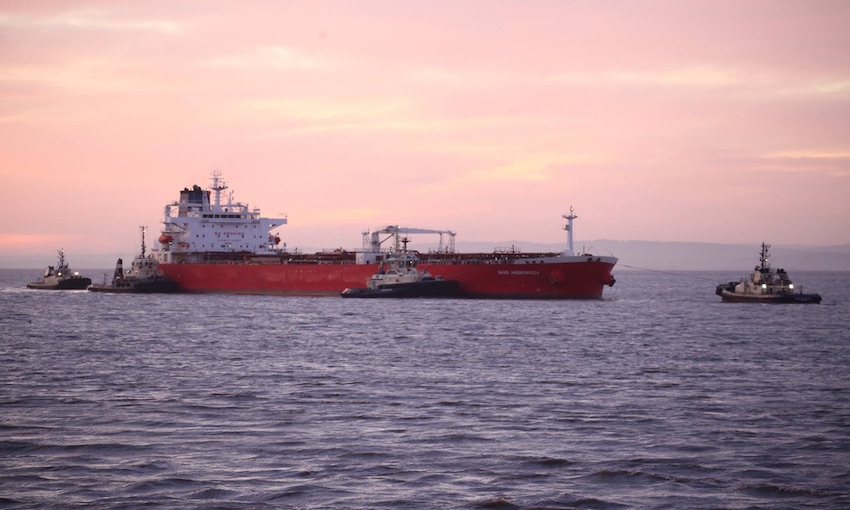NGO Human Rights at Sea has published a new independent insight briefing note on stowaways. It looks at the background to incidents at sea, the drivers for individuals to take such risks and the human consequences.
Legally reviewed by shipping lawyers at Norton Rose Fulbright LLP, with first-hand accounts supplied from MIRIS International and supported with AIS data-backed infographics from OceanMind, the publication also reflects on the recent Nave Andromeda case off the south coast of the United Kingdom.
The incident took place on 25 October 2020 in the English Channel just off the coast of the Isle of Wight following the suspected hijacking of the Liberian-flagged crude oil tanker Nave Andromeda.
During its voyage from Lagos to England, the ship anchored off the coast of the Canary Islands and Saint-Nazaire. The ship’s crew and its operator, Navios Tanker Management, became aware of the presence of stowaways, something it was aware of “for some time” during the ship’s journey.
When the stowaways grew violent, concerns were raised for the safety of the ship’s 22 crew members and military assistance was sought to bring the incident to a safe end.
“This incident, like those before it and those which have since followed, re-emphasises the need for such events to be viewed in context with the majority of stowaways acting peacefully and being delivered without incident to the authorities at the next port of call,” HRAS CEO David Hammond said.
Today, stowaways continue to be found onboard commercial vessels causing disruption to the master, crew, owner and the voyage. In some circumstances they may be a direct threat to the safety, security and wellbeing of the crew and vessel, but in other circumstances they may be compliant, of no threat, seeking economic betterment, or fleeing persecution and human rights’ abuse.
“At first instance, the intentions of a stowaway may well be unknown to those who locate and identify them,” according to HRAS.
“As such, reasonable crew safety and security precautions must always be taken and it is vital to inform flag state, port(s) of transit and the port of destination that stowaways are onboard.
“Nonetheless, stowaways retain fundamental human rights and must be treated accordingly.”
Humanity, care and provision of basic welfare support must be provided throughout the remaining voyage until the stowaways can be handed over to immigration authorities.
“However, stowaways can become hostile thereby requiring deprivation of liberty measures to be taken if possible, although if this step is taken, it must be done so with care to avoid unnecessary force or harm whilst maintaining some degree of care and fundamental rights’ protections,” HRAS said.
“If this is not possible, then requesting external intervention through the flag, coastal or port state authorities may be necessary.”
As recently as the 9 February 2021, a stowaway incident off the coast of Dorset, UK, was publicly reported. The facts of the incident are yet to be confirmed at the time of writing, but it resulted in the arrest of seven individuals thought to be of Albanian nationality.
The Insight Briefing Note Stowaways: Background, Drivers and Human Consequences can be accessed here.

